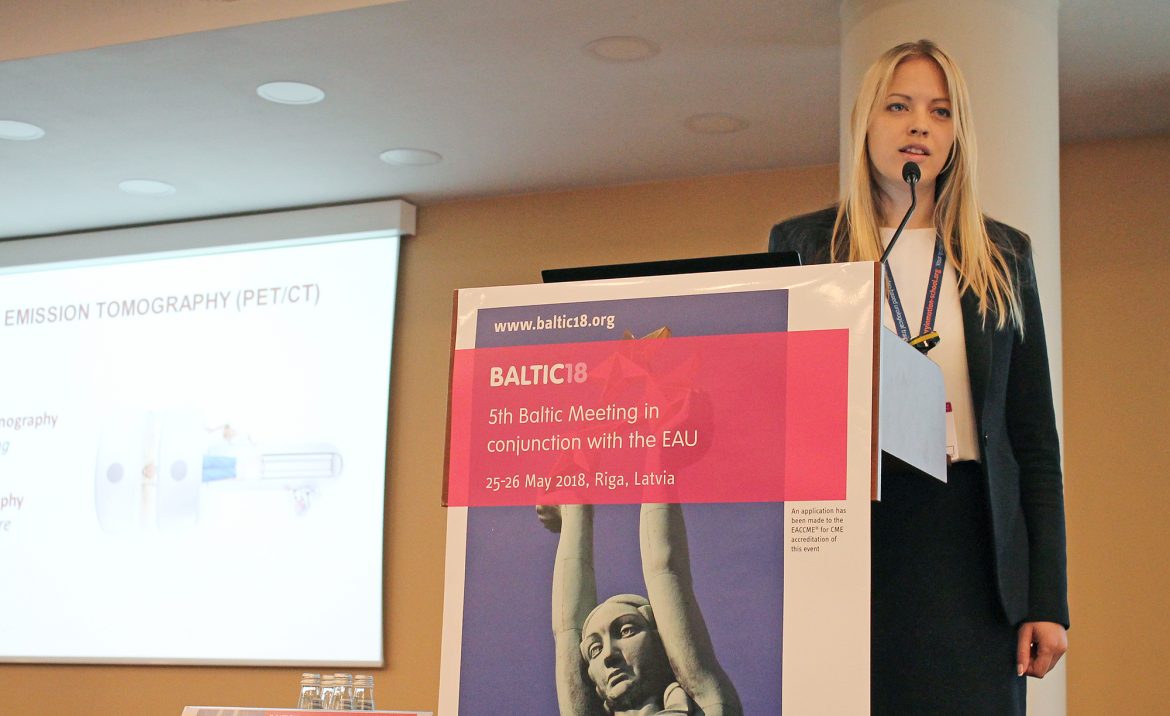Robotic radiosurgery and low-dose rate and high-dose rate brachytherapy in prostate cancer (PCa) were some of the topics discussed today by experts from the Baltic region. Their innovative research was presented during the “Advances in imaging radiotherapy on prostate cancer” session chaired by Dr. Martin Kivi (EE) and Assoc. Prof. Egils Vjaters (LV).
“CyberKnife robotic radiosurgery is safe and effective treatment for solitary and oligometastatic prostate cancer,” said Dr. Māris Mežeckis (LV). He stated that radiosurgery can postpone the need for androgen deprivation therapy (ADT) in biochemical relapse and might delay progression in oligometastatic hormone-resistant prostate cancer (PCa).
In his lecture “The role of robotic radiosurgery in treatment of solitary and oligometastatic relapses of prostate cancer”, Mežeckis emphasised that careful examination, including positron emission tomography–computed tomography (PET-CT), is mandatory to detect all subclinical lesions in the body. To help distinguish the initial stage of poly-metastatic disease from oligometastatic disease, molecular/genetic markers or risk-estimation calculators are needed.
In her lecture “Low-dose rate and high-dose rate brachytherapy in prostate cancer”, Dr. Rūta Austėja Lenkaitytė (LT) stated that all eligible patients with intermediate to high-risk PCa should be offered external beam radiotherapy (EBRT) plus brachytherapy boost. She said that high-dose rate brachytherapy (HDR-BT) monotherapy is effective using multiple fractions but further investigation is needed to assess the effectiveness and late toxicities of between one- and two-fraction schemes. “Salvage BT is a promising option for patients who are not eligible for salvage prostatectomy. However more randomised trials are needed to assess its efficacy,” concluded Dr. Lenkaitytė.
“68GA-PSMA PET/CT imaging is superior to choline-PET and also superior than standard imaging procedures for lymph node and bone staging,” said Dr. Marika Kalniņa (LV). “68GA-PSMA PET/CT imaging might enable tailored radiotherapeutic or surgical interventions.” According to Kalniņa, PSMA PET is not perfect as small-sized lesions can still be missed. Nonetheless, 68Ga-PSMA PET-CT shows great promise in improving prostate cancer care.



